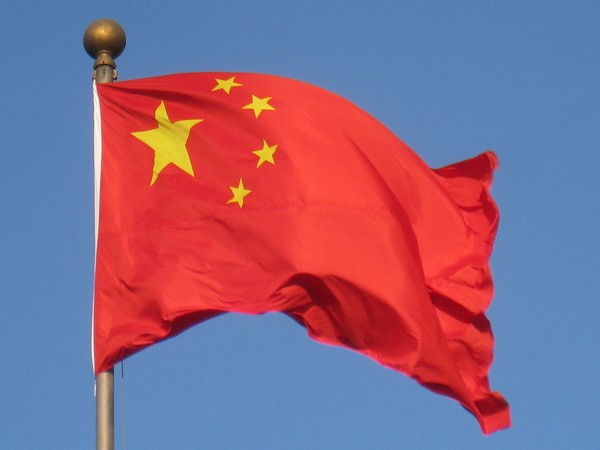China is experiencing a significant exodus of top executives from its financial sector as the government intensifies its crackdown on the industry.
Over the past month, more than a thousand senior leaders from A-share listed companies, banks, and financial institutions have stepped down, citing personal reasons, according to Chinese state media.
This wave of resignations follows the abrupt departure of Liu Jin, vice chairman and president of the Bank of China, at the end of August.
The list of those resigning includes chairmen, presidents, vice presidents, and other senior executives from various banks, insurance companies, securities firms, and state-owned enterprises.
The recent wave of executive resignations aligns with Beijing’s intensified crackdown on the financial sector.
By September 18, the Central Commission for Discipline Inspection reported that at least 67 senior finance officials had been investigated, disciplined, or expelled from the Chinese Communist Party (CCP) this year.
The financial system, a cornerstone of China’s economy, has been burdened by massive local debt, property bubbles, shadow banking, and repayment crises.
According to U.S.-based experts Du Wen, a former official from the Inner Mongolia Legislative Affairs Office, and economist Li Hengqing, these high-ranking finance officials are deeply embedded within the CCP system.
Their resignations suggest a declining confidence in the economy and an anticipation of increased political risks.
It’s important to note that such resignations require CCP approval, making them significant.
Du mentioned that an insider revealed the central authorities’ reluctance to approve most resignations due to significant concerns over maintaining financial stability.
This means that many bankers and company leaders, despite their desire to step down, are compelled to remain in their positions.
This enforced retention exposes them to considerable risks, including the possibility of being interrogated during financial investigations conducted by disciplinary authorities. These investigations could lead to severe consequences, such as political purges, where individuals are removed from their positions and face potential legal repercussions.
Li further explained that investment bankers, in particular, possess extensive knowledge about the financial system’s inner workings.
This includes awareness of bad debts, falsified account statements, and manipulated audit reports.
Such information is highly sensitive and potentially damaging if disclosed.
Therefore, the Chinese Communist Party (CCP) is determined to prevent these bankers from resigning and fleeing with this critical information.
The CCP’s strategy aims to ensure that these individuals remain within the system, where they can be monitored and controlled, thereby safeguarding the integrity and stability of the financial sector.
China’s state media reports that some brokerage firms have required investment bankers to hand over their passports and imposed conditional restrictions on their ability to travel abroad.
Additionally, several firms have suspended the review process for resignations, effectively trapping executives in their current roles.
One financial chief described the sector as an “unfriendly environment” undergoing “one of the worst cycles,” which has created significant “uncertainty about the future.”
This situation reflects the broader challenges faced by financial professionals in China amid the government’s intensified crackdown on the financial sector, leading to a climate of fear and instability.
David Huang, an economist well-versed in China’s situation, explained that the sweeping nationwide purge has placed financial executives and leaders of state-owned enterprises in a challenging position.
They find themselves unable to leave China or resign from their jobs.
Huang attributed this predicament to the CCP’s current management system, which requires these individuals to submit their passports to the relevant authorities, who then withhold them unless they resign.
The CCP has intensified its “anti-corruption” campaign in the financial sector. Among the most severely punished is Tian Huiyu, former president of China Merchants Bank Co., who received a suspended death sentence in February for bribery and insider trading.
Tian was also expelled from the CCP and had all his personal property confiscated.
In July, a former deputy general manager of Haitong Securities attempted to flee the country but was apprehended and deported back to China just a month later.
This is a significant drop from its peak of 5,807.72 in February 2021, which was the highest point since the onset of the COVID-19 pandemic and the implementation of strict quarantine measures across the country.
Chinese media highlighted his case as part of the “Skynet” operation, led by Beijing’s Ministry of Public Security, aimed at capturing corrupt CCP officials who escape abroad.
The financial system, a cornerstone of China’s economy, has been burdened by massive local debt, property bubbles, shadow banking, and repayment crises.
Du noted that high-income earners in top positions are particularly vulnerable, likening their situation to a volcano on the brink of eruption.
They are eager to distance themselves from responsibility and avoid becoming scapegoats before the financial market collapses.
China’s stock market has been on a downward trajectory in recent years.
The CSI 300 Index, which represents the overall performance of the Shanghai and Shenzhen stock markets, plummeted to a record low of 3,159.92 on September 13.
This is a significant drop from its peak of 5,807.72 in February 2021, which was the highest point since the onset of the COVID-19 pandemic and the implementation of strict quarantine measures across the country.








Comment